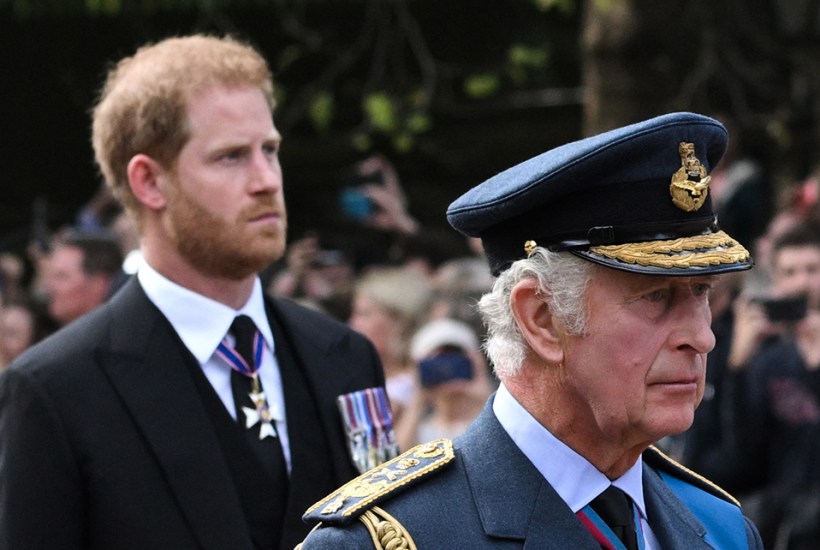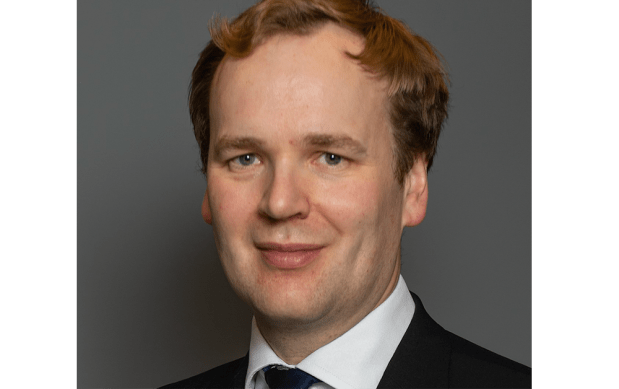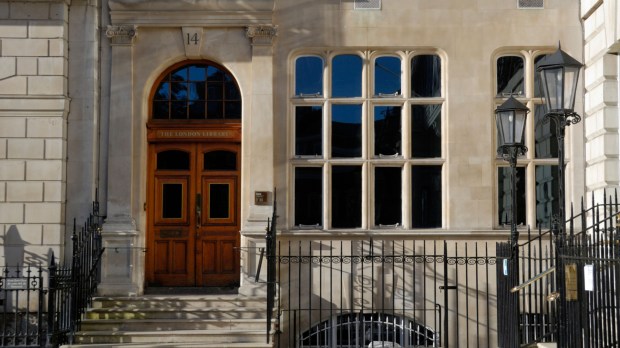The Duke of Sussex says that he and his wife can never return to live in the United Kingdom. They will never again perform royal duties. By the same token, surely, they should not be invited to the coronation in May. There has to be a price for publicly attacking the King, the Queen Consort and the heir to the throne, attacks in which he gave accounts of private occasions when he must know that the people he condemns can never give their version of the events. If the Sussexes were invited, that would imply that their behaviour was condoned, which would in turn imply that the manner and content of their criticisms were justified. If they accepted, their presence would disrupt the ceremony. If they refused, they would also grab attention. I believe this is officially recognised, and so an invitation will not be sent. But it should not have to reach this point. If Prince Harry understood the logic of his position and the consequences of his actions, he would write and say that he and Meghan do not seek an invitation. He is indeed spare, and so he should spare us.
Critics have suggested that Harry’s boast about killing 25 Taliban displays his stupidity. This cannot be ruled out. But remember that one of the Prince’s main obsessions is that he lost his taxpayer-funded security when he gave up his duties. If his claims about what he did in the service of the Crown attract the interest of Islamist fanatics, might he be able to demand British taxpayer-funded protection in Montecito?
In the audio version of Prince Harry’s book, you can hear him denouncing Rupert Murdoch’s right-hand woman, Rebekah Brooks, whom he describes as a ‘loathsome toad, a pustule on the arse of humanity’. He says she had falsely alleged, ‘focusing all her great power on me’, that he went into rehab. ‘Can it possibly be a coincidence,’ he asks, that her name ‘is a perfect anagram for “Rehabber Kooks”? Is the universe not saying something there?’ Well, it is an anagram, if not a perfect one. The universe also produces an anagram of Harry and Meghan – ‘Harmed Granny – ha’.
Rishi Sunak has finally commented on whether he and his family use private medicine. One understands his previous reticence about this. People have pointed out that Margaret Thatcher, when prime minister, made no bones about her private medical treatment. They did not add that this gave her a very rough time in the 1987 general election campaign. Her assertion that private medicine enabled her to ‘go into the hospital I want on the day I want…with the doctor I want’ was contrasted unfavourably with Neil Kinnock’s weepy press conference on the same day about a ten-year-old boy with a hole in his heart. However, she did win the election with an overall majority of 102. A politician who uses private medicine has to break through this pain barrier, and it is a pity Mr Sunak did not realise this at once. He said in his big new year speech last week that when he talked about the NHS, it was, for him, more than just ‘a prized public service’: ‘I’m talking about my family’s life calling. My dad was a doctor. I grew up working in my mum’s pharmacy.’ If, despite his family’s ‘life calling’, he moved away from the NHS, that is significant. It suggests that the service is not good enough. Later in the same speech, he did edge towards discussing why ‘patients aren’t receiving the care they deserve’. I think the public mood has changed because of Covid and post-Covid many now realise that there is something wrong with the NHS as a system. More now opt out of it if they can, and should not be attacked for doing so. Mr Sunak is, in that sense, representative of the public mood, though unrepresentatively rich. As with his wife’s non-dom status, he made a mistake by prevaricating on the issue. He would do better to try to lead the country through it.
In the same speech, the Prime Minister set out ‘five key priorities’ – growth, inflation, NHS waiting lists falling etc. Why was the war in Ukraine not one of them? As he mentioned in his speech, that war has brought about a high proportion of our current miseries. Its outcome is vital to our interests and those of the whole free world, and the only good result is the nullification of all Vladimir Putin’s invasion gains. This is something any prime minister needs to keep before everyone’s mind, which Boris Johnson did. There is no sign that Sunak has a bad policy on Ukraine, but there are some that he is uneasy with the subject and reluctant to push it as hard as his predecessors. It is a matter on which Britain is losing its edge.
Sitting on the Tube recently, I looked along the row of legs of the people facing me. One woman was wearing tights with writing on them. This is unusual: you often see writing on T-shirts, bomber jackets etc, but I do not remember seeing it on tights before. I inspected the writing. It was in a cursive script and not easy to read, but eventually I discerned that the words were Italian of an old-fashioned kind and the lines laid out as if in several stanzas. My eye travelled up the wearer’s leg, looking for the beginning of the poem. Just above the knee, I found it: ‘Nel mezzo del cammin di nostra vita…’ – I recognised the opening words of Dante’s Inferno. Then I panicked. Was my attention unwelcome? Had I, in my effort to understand what I was seeing, been guilty of ‘staring’, an activity which people are trying to make an offence on public transport? The poem’s opening is about a man who has lost the strait way (‘la diritta via’) in a dark wood (‘una selva oscura’) of a mid-life crisis. Was this some sort of literary ‘honeytrap’? I realised that if I wished to study Dante, I must read him in book form, not on a woman’s legs. I exercised the discipline of the eyes and reverted to my Spectator.
Got something to add? Join the discussion and comment below.
Get 10 issues for just $10
Subscribe to The Spectator Australia today for the next 10 magazine issues, plus full online access, for just $10.
You might disagree with half of it, but you’ll enjoy reading all of it. Try your first month for free, then just $2 a week for the remainder of your first year.















Comments
Don't miss out
Join the conversation with other Spectator Australia readers. Subscribe to leave a comment.
SUBSCRIBEAlready a subscriber? Log in